The one about the Modules
Ok, I'm here to debunk a myth. Although it's a well known fact that SEP was created by The Chan Brothers Travel Agency back in 2001, SEP is not all fun and games and parties and travelling. Nope, it's not about the beer too. We do study while on SEP too, you know!
Before I continue, let me show you what became of our very first study trip many weeks back. That night, Siong Yang, Yuanheng and I packed our notes, brought our coffee and kettle and headed to a quiet spot in DTU. A few moments later:
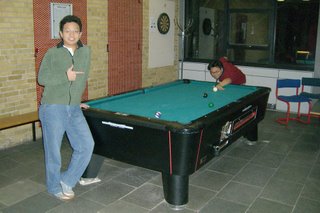 Yeah, I must admit, it's difficult when you're on SEP and everything is S/Ued. But you do manage to get work done as long as you stay far away from Siong Yang. He's just too fun to be around!
Yeah, I must admit, it's difficult when you're on SEP and everything is S/Ued. But you do manage to get work done as long as you stay far away from Siong Yang. He's just too fun to be around!
The lesson schedule in DTU is very different from NUS. Sessions are up to 4hrs!! long! There can only be a maximum of 2 sessions a day (thank goodness!) - the AM (from 8am to 12 noon) and the PM (from 1pm to 5pm). But it all depends on the amount of content for the day and we can be dismissed earlier sometimes. The sessions very flexible and are usually a mix of lectures and tutorials.
Let me take you through the courses I'm currently enrolled in (without sounding too technical):
1) Intro to Artificial Intelligence: (outline)
Venue: Building 306, Auditorium 32
Schedule: Tues 9.30am to 11.30am
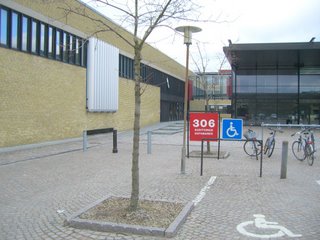
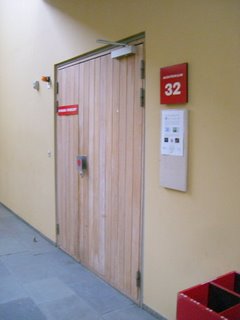
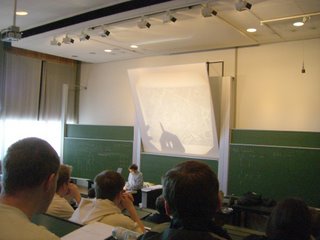 This one is pretty interesting. Ok, come on, I'm a computer engineer. It's a computer science module, mapped to foundations of artificial intelligence in NUS. I get to learn all about how to make a computer program smart.
This one is pretty interesting. Ok, come on, I'm a computer engineer. It's a computer science module, mapped to foundations of artificial intelligence in NUS. I get to learn all about how to make a computer program smart.
It consists of 2 interesting projects. The first one is to create a fully functional tic-tac-toe game. The idea is to get the AI to make the best moves based on your moves. Sounds easy? I further expanded it into a 4 by 4 tic-tac-toe board. Now that's more complex! It was hard work, but the end result was fun! Plus try beating me at tic tac toe now! hahaha~ Here's the completed program for you to play with. It's far from perfect, but you get the idea.
The next project I will need to complete is a street navigator. Think streetdirectory.com. But applied to the entire Copenhagen City district. The idea is to find the shortest path from point A to point B obeying rules like a one way street. The program will give the user the shortest path as a series of road names to follow. This one will be challenging but fun!
2) Motion Control: (outline)
Venue: Building 402, Room 017
Schedule: Mon 1pm to 5pm, Thurs 8.30am to 12pm
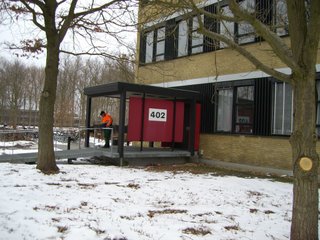
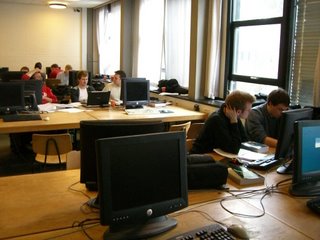 This module is all about control theory. Control theory can be cool cos it can be used to control systems automomously (without human intervention).
This module is all about control theory. Control theory can be cool cos it can be used to control systems automomously (without human intervention).
This is pretty much a project module and my team and I are to design a laser engraving table. Something that can, say etch your name on a piece of metal. After that we need to simulate it on the Matlab program. Using both classical control and modern control techniques. Quite a mouthful. But it's pretty managable. Plus my teammates Ali (from Turkey) and Alex (from Boston, US) are really great guys!
3) Design & Synthesis of Embedded Systems: (outline)
Venue: Building 308, Auditorium 11
Schedule: Wed 1pm to 5pm
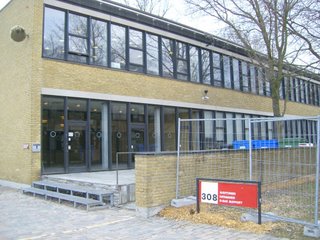
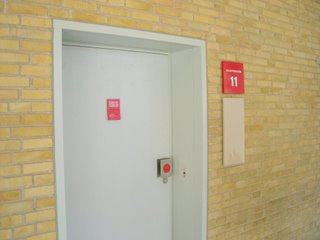
 This next module is the one I'm most interested in. It's as the title says - how to design and create an embedded system. For this semester, we are concentrating on Wireless Sensor Networks. So the content is all geared towards this.
This next module is the one I'm most interested in. It's as the title says - how to design and create an embedded system. For this semester, we are concentrating on Wireless Sensor Networks. So the content is all geared towards this.
But the teaching style is really different! The first few lectures are as per normal and taught by the professor. But right now the class is basically conducted by the students. Every week, we are assigned 4 readings on the topic for the following lecture. 2 groups are assigned 2 readings each and are to prepare a presentation of it. Mind you, the readings can be VERY technical and sometimes, you'd wish you were reading The Complete Works of Shakespeare instead of this mumbo jumbo. The presentations are conducted up to 1 hour long. Afterwhich there is Q&A.
And here's the interesting part. Remember when your NUS lecturers claimed that NUS students are all quiet and don't speak up? Well, it's true! The Q&A discussions here are fiery man! The students just ask and talk like they were talking in the canteen with their friends. From the small cruise missles to the nuclear warheads. This is something we should try to learn from the universities abroad.
My team and I presented on the second session. And we were really happy with our own presentation. To think I presented such technical stuff to a group of students, most of them masters level! And we managed to fend off the verbal attacks! There was this scary TA in the audience whose sole purpose is to intimidate the students and ask funny questions. I think we managed to block off his atacks. At the end, the professor said we did a good job. Well done, team!
My team is mainly Singaporean. My team consists of Yuanheng, Song Ning, Nestor and I. Yuanheng and Song Ning came together to DTU with me. But Nestor is from Macedonia. And yet another great guy! Really humble and knowledgable! We're glad to have him on on board!
Even the assessment is special. We are soley assessed on a project. But we are to propose our topic. And then write a technical paper on it. We took quite a while to come up with an interesting project thesis, but it's finally been approved and we can start work.
For this one, I'm to create an entire microprocessor using the VHDL programming language. And then implement it on an FPGA (multi-purpose programming board). Sounds difficult! But guess what? Turns out to be similiar to what I've done before in Digital Design (EE2006).
This module is also project based and I'm doing this with Siong Yang and 2 other Danes. Jesper and Hasan. Really nice! And we've come to realise that crapping is universal, whether you are in Singapore or Denmark!
Oh, and did I mention that this module is taught in Danish? We have sought special permisson to take this module and basically I am self studying it from the textbook. But due to the fact that it's more project based, there is less theory involved and more practical, and we are able to follow it quite well.
5) Advanced Data Communications: (outline)Venue: Building 341, Auditorium 22
Schedule: Thurs 1pm to 5pm
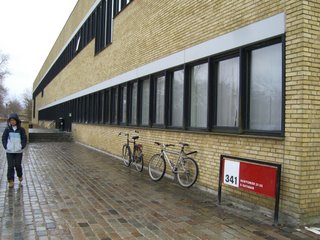
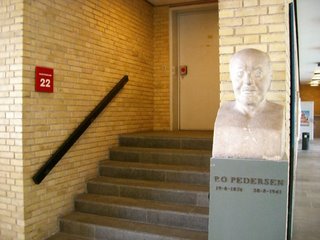
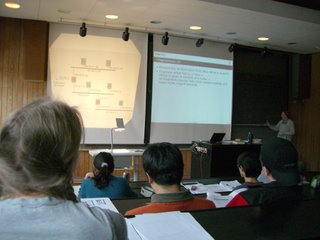 This module is pretty chim. Advanced data communications. When I haven't even done basic data communications. This basically involves communication between computers and computer networks. Like how the internet works. Cept now we go deep deep into the small small details.
This module is pretty chim. Advanced data communications. When I haven't even done basic data communications. This basically involves communication between computers and computer networks. Like how the internet works. Cept now we go deep deep into the small small details.
This class is pretty different, cos I could very well mistake it to be conducted in NUS. So many PRCs in the class. I can see so many black haired heads from where I'm sitting above. Seems like communications is a very popular track among the PRCs.
Also, the lecturer has such a powerful voice! I say give him a tuxedo and get him to grow a beard. And we have our own Pavaroti in the house!
And so we have it - a glimpse into lessons and studying here in DTU!
Before I continue, let me show you what became of our very first study trip many weeks back. That night, Siong Yang, Yuanheng and I packed our notes, brought our coffee and kettle and headed to a quiet spot in DTU. A few moments later:
 Yeah, I must admit, it's difficult when you're on SEP and everything is S/Ued. But you do manage to get work done as long as you stay far away from Siong Yang. He's just too fun to be around!
Yeah, I must admit, it's difficult when you're on SEP and everything is S/Ued. But you do manage to get work done as long as you stay far away from Siong Yang. He's just too fun to be around!The lesson schedule in DTU is very different from NUS. Sessions are up to 4hrs!! long! There can only be a maximum of 2 sessions a day (thank goodness!) - the AM (from 8am to 12 noon) and the PM (from 1pm to 5pm). But it all depends on the amount of content for the day and we can be dismissed earlier sometimes. The sessions very flexible and are usually a mix of lectures and tutorials.
Let me take you through the courses I'm currently enrolled in (without sounding too technical):
1) Intro to Artificial Intelligence: (outline)
Venue: Building 306, Auditorium 32
Schedule: Tues 9.30am to 11.30am


 This one is pretty interesting. Ok, come on, I'm a computer engineer. It's a computer science module, mapped to foundations of artificial intelligence in NUS. I get to learn all about how to make a computer program smart.
This one is pretty interesting. Ok, come on, I'm a computer engineer. It's a computer science module, mapped to foundations of artificial intelligence in NUS. I get to learn all about how to make a computer program smart.It consists of 2 interesting projects. The first one is to create a fully functional tic-tac-toe game. The idea is to get the AI to make the best moves based on your moves. Sounds easy? I further expanded it into a 4 by 4 tic-tac-toe board. Now that's more complex! It was hard work, but the end result was fun! Plus try beating me at tic tac toe now! hahaha~ Here's the completed program for you to play with. It's far from perfect, but you get the idea.
The next project I will need to complete is a street navigator. Think streetdirectory.com. But applied to the entire Copenhagen City district. The idea is to find the shortest path from point A to point B obeying rules like a one way street. The program will give the user the shortest path as a series of road names to follow. This one will be challenging but fun!
2) Motion Control: (outline)
Venue: Building 402, Room 017
Schedule: Mon 1pm to 5pm, Thurs 8.30am to 12pm

 This module is all about control theory. Control theory can be cool cos it can be used to control systems automomously (without human intervention).
This module is all about control theory. Control theory can be cool cos it can be used to control systems automomously (without human intervention).This is pretty much a project module and my team and I are to design a laser engraving table. Something that can, say etch your name on a piece of metal. After that we need to simulate it on the Matlab program. Using both classical control and modern control techniques. Quite a mouthful. But it's pretty managable. Plus my teammates Ali (from Turkey) and Alex (from Boston, US) are really great guys!
3) Design & Synthesis of Embedded Systems: (outline)
Venue: Building 308, Auditorium 11
Schedule: Wed 1pm to 5pm


 This next module is the one I'm most interested in. It's as the title says - how to design and create an embedded system. For this semester, we are concentrating on Wireless Sensor Networks. So the content is all geared towards this.
This next module is the one I'm most interested in. It's as the title says - how to design and create an embedded system. For this semester, we are concentrating on Wireless Sensor Networks. So the content is all geared towards this.But the teaching style is really different! The first few lectures are as per normal and taught by the professor. But right now the class is basically conducted by the students. Every week, we are assigned 4 readings on the topic for the following lecture. 2 groups are assigned 2 readings each and are to prepare a presentation of it. Mind you, the readings can be VERY technical and sometimes, you'd wish you were reading The Complete Works of Shakespeare instead of this mumbo jumbo. The presentations are conducted up to 1 hour long. Afterwhich there is Q&A.
And here's the interesting part. Remember when your NUS lecturers claimed that NUS students are all quiet and don't speak up? Well, it's true! The Q&A discussions here are fiery man! The students just ask and talk like they were talking in the canteen with their friends. From the small cruise missles to the nuclear warheads. This is something we should try to learn from the universities abroad.
My team and I presented on the second session. And we were really happy with our own presentation. To think I presented such technical stuff to a group of students, most of them masters level! And we managed to fend off the verbal attacks! There was this scary TA in the audience whose sole purpose is to intimidate the students and ask funny questions. I think we managed to block off his atacks. At the end, the professor said we did a good job. Well done, team!
My team is mainly Singaporean. My team consists of Yuanheng, Song Ning, Nestor and I. Yuanheng and Song Ning came together to DTU with me. But Nestor is from Macedonia. And yet another great guy! Really humble and knowledgable! We're glad to have him on on board!
Even the assessment is special. We are soley assessed on a project. But we are to propose our topic. And then write a technical paper on it. We took quite a while to come up with an interesting project thesis, but it's finally been approved and we can start work.
For this one, I'm to create an entire microprocessor using the VHDL programming language. And then implement it on an FPGA (multi-purpose programming board). Sounds difficult! But guess what? Turns out to be similiar to what I've done before in Digital Design (EE2006).
This module is also project based and I'm doing this with Siong Yang and 2 other Danes. Jesper and Hasan. Really nice! And we've come to realise that crapping is universal, whether you are in Singapore or Denmark!
Oh, and did I mention that this module is taught in Danish? We have sought special permisson to take this module and basically I am self studying it from the textbook. But due to the fact that it's more project based, there is less theory involved and more practical, and we are able to follow it quite well.
5) Advanced Data Communications: (outline)Venue: Building 341, Auditorium 22
Schedule: Thurs 1pm to 5pm


 This module is pretty chim. Advanced data communications. When I haven't even done basic data communications. This basically involves communication between computers and computer networks. Like how the internet works. Cept now we go deep deep into the small small details.
This module is pretty chim. Advanced data communications. When I haven't even done basic data communications. This basically involves communication between computers and computer networks. Like how the internet works. Cept now we go deep deep into the small small details.This class is pretty different, cos I could very well mistake it to be conducted in NUS. So many PRCs in the class. I can see so many black haired heads from where I'm sitting above. Seems like communications is a very popular track among the PRCs.
Also, the lecturer has such a powerful voice! I say give him a tuxedo and get him to grow a beard. And we have our own Pavaroti in the house!
And so we have it - a glimpse into lessons and studying here in DTU!

2 Comments:
you're soooooo lucky!
those people taking Foundations of AI and Embedded Systems back @ SG are all writhing in pain.. (emotional pain that is...)
okies okies... we get the picture now... you are working hard there as well with plenty of fun and beer... haha...
really but how often does life gets this good?
Enjoy it while it lasts yeah!...=)
Wishing you (+SY) well....=)
Post a Comment
<< Home